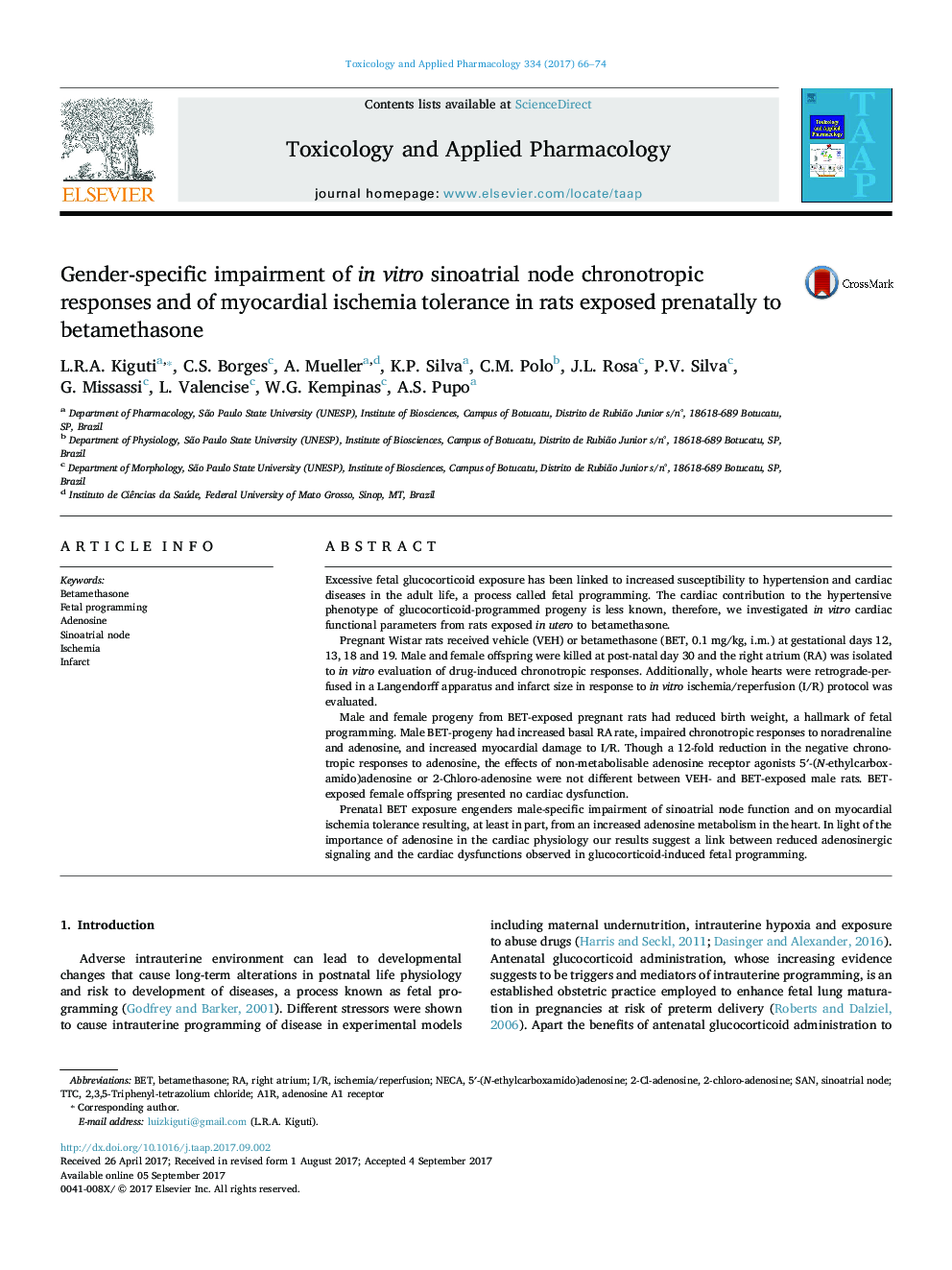| Article ID | Journal | Published Year | Pages | File Type |
|---|---|---|---|---|
| 5558250 | Toxicology and Applied Pharmacology | 2017 | 9 Pages |
â¢Gender-specific betamethasone programming of cardiac diseaseâ¢Betamethasone-induced fetal programming impairs sinoatrial node function.â¢Blunted cardiac adenosine signaling in the betamethasone programmed heartâ¢Reduced adenosine signaling as a mediator of glucocorticoid programming of disease
Excessive fetal glucocorticoid exposure has been linked to increased susceptibility to hypertension and cardiac diseases in the adult life, a process called fetal programming. The cardiac contribution to the hypertensive phenotype of glucocorticoid-programmed progeny is less known, therefore, we investigated in vitro cardiac functional parameters from rats exposed in utero to betamethasone.Pregnant Wistar rats received vehicle (VEH) or betamethasone (BET, 0.1Â mg/kg, i.m.) at gestational days 12, 13, 18 and 19. Male and female offspring were killed at post-natal day 30 and the right atrium (RA) was isolated to in vitro evaluation of drug-induced chronotropic responses. Additionally, whole hearts were retrograde-perfused in a Langendorff apparatus and infarct size in response to in vitro ischemia/reperfusion (I/R) protocol was evaluated.Male and female progeny from BET-exposed pregnant rats had reduced birth weight, a hallmark of fetal programming. Male BET-progeny had increased basal RA rate, impaired chronotropic responses to noradrenaline and adenosine, and increased myocardial damage to I/R. Though a 12-fold reduction in the negative chronotropic responses to adenosine, the effects of non-metabolisable adenosine receptor agonists 5â²-(N-ethylcarboxamido)adenosine or 2-Chloro-adenosine were not different between VEH- and BET-exposed male rats. BET-exposed female offspring presented no cardiac dysfunction.Prenatal BET exposure engenders male-specific impairment of sinoatrial node function and on myocardial ischemia tolerance resulting, at least in part, from an increased adenosine metabolism in the heart. In light of the importance of adenosine in the cardiac physiology our results suggest a link between reduced adenosinergic signaling and the cardiac dysfunctions observed in glucocorticoid-induced fetal programming.
Graphical abstractDownload high-res image (152KB)Download full-size image
